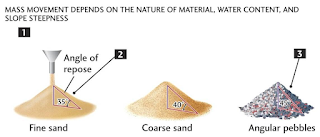Transmucosal drug delivery
Transmucosal drug delivery is a type of drug delivery system in which medications are administered through the mucosal membranes, such as those found in the nose, mouth, throat, lungs, and rectum. Transmucosal drug delivery has several advantages over other drug delivery systems, such as oral and injectable routes, including rapid onset of action, avoidance of first-pass metabolism, and improved patient compliance. However, it also has several limitations and potential side effects that need to be considered.
Merits of transmucosal drug delivery:Rapid onset of action: Transmucosal drug delivery provides rapid onset of action, as the medication bypasses the gastrointestinal tract and enters the bloodstream directly, allowing for quick and efficient absorption.
Avoidance of first-pass metabolism: Transmucosal drug delivery bypasses the liver and thus avoids first-pass metabolism, allowing for a higher bioavailability of the medication.
Improved patient compliance: Transmucosal drug delivery is often more convenient and less invasive than other routes of drug administration, such as injections, which can lead to improved patient compliance and adherence to the medication regimen.
Non-invasive: Transmucosal drug delivery is a non-invasive route of administration, which reduces the risk of infection, injury, and other complications associated with invasive procedures.
Demerits of transmucosal drug delivery:
Limited absorption: The absorption of drugs through the mucosal membranes can be limited due to the thickness of the membranes and the limited surface area available for absorption.
Tolerance and dependence: Transmucosal drug delivery can lead to tolerance and dependence, as the rapid onset of action can lead to a higher risk of abuse and addiction.
Irritation and discomfort: Transmucosal drug delivery can cause irritation and discomfort in the mucosal membranes, leading to local side effects such as inflammation, swelling, and pain.
Difficulty in formulation: Formulating drugs for transmucosal drug delivery can be challenging due to the unique properties of the mucosal membranes, such as high variability in pH and enzyme activity.
Limitations of transmucosal drug delivery:
Limited drug types: Not all drugs can be delivered through transmucosal drug delivery due to their physicochemical properties and limitations of the mucosal membranes.
Difficulty in dosing: Accurately dosing drugs through transmucosal drug delivery can be challenging due to the variability in the absorption rate of the mucosal membranes.
Sensitivity to external factors: The absorption rate of drugs through the mucosal membranes can be affected by external factors such as temperature, humidity, and airflow.
Cost and accessibility: Transmucosal drug delivery systems can be expensive and may not be readily accessible in all settings, particularly in low-income countries and rural areas.
Suitable drugs for transmucosal drug delivery:
Nicotine: Nicotine can be delivered through transmucosal drug delivery for smoking cessation and addiction treatment.
Fentanyl: Fentanyl can be delivered through transmucosal drug delivery for pain management.
Budesonide: Budesonide can be delivered through transmucosal drug delivery for the treatment of inflammatory bowel disease.
Nitroglycerin: Nitroglycerin can be delivered through transmucosal drug delivery for the treatment of angina pectoris.
In conclusion, transmucosal drug delivery is a useful drug delivery system that provides rapid onset of action, avoids first-pass metabolism, and improves patient compliance. However, it also has several limitations and potential side effects that need to be considered, such as limited absorption, tolerance and dependence, irritation and discomfort, difficulty in formulation, and limited drug types. Suitable drugs for transm




Comments
Post a Comment